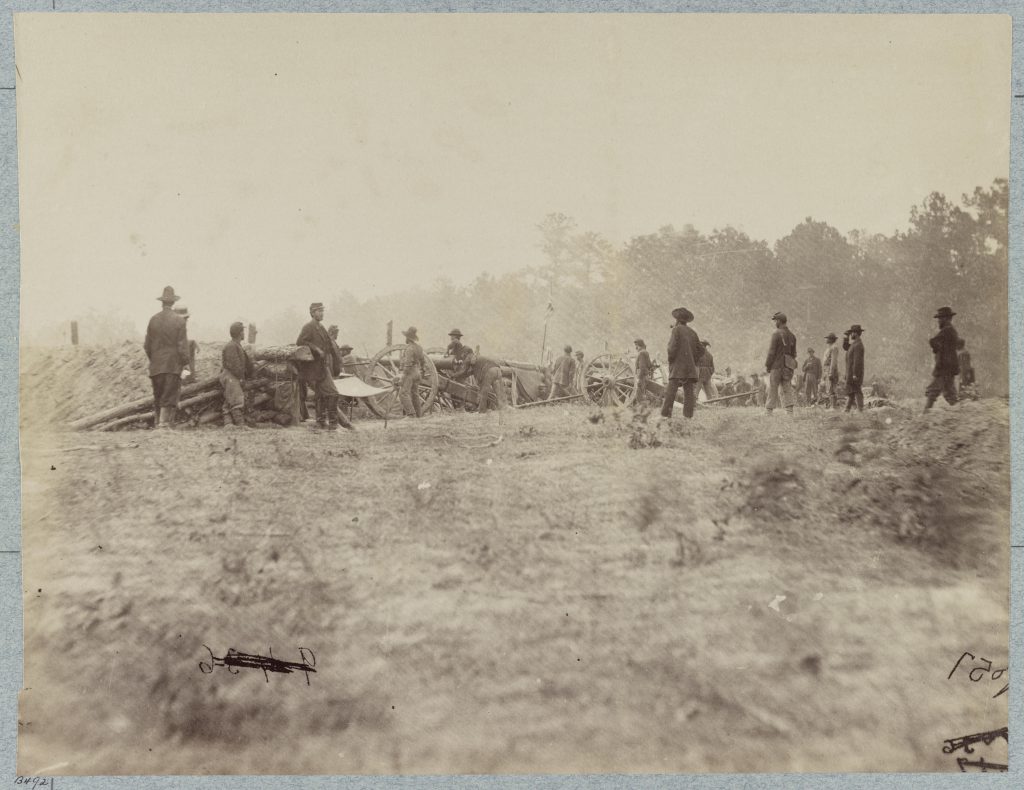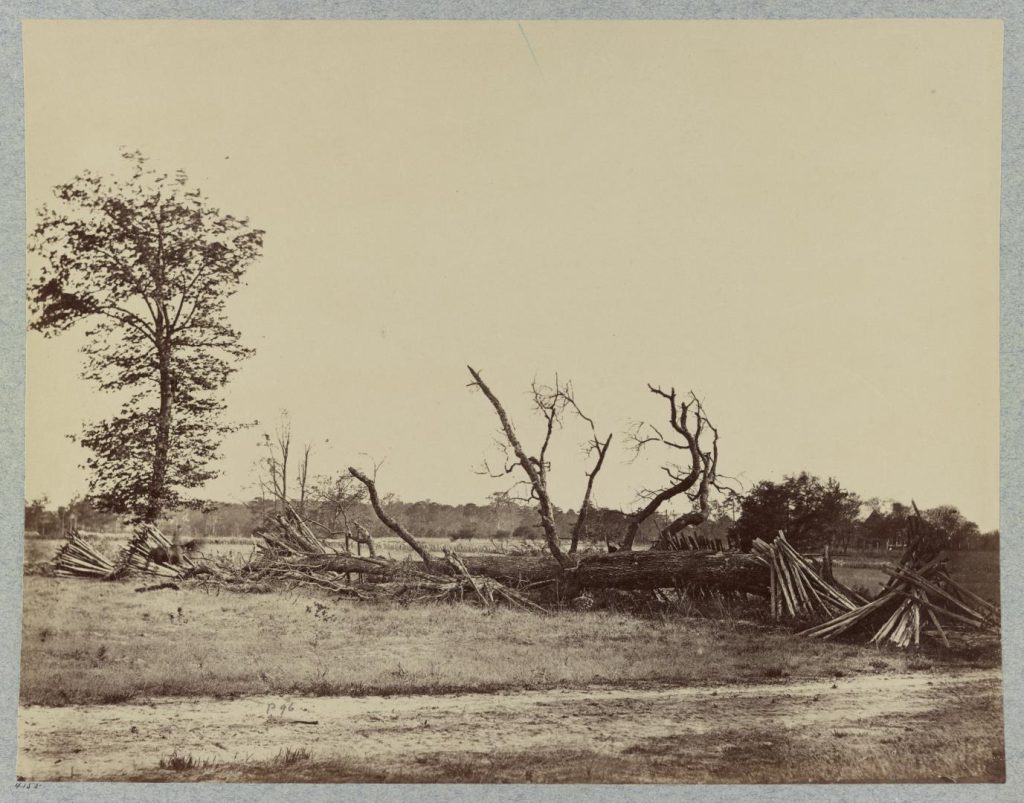Research Arsenal Spotlight 17: Robert Alexander Garner of the 21st South Carolina Infantry
Our focus this week is on a collection of 14 documents related to Robert Alexander Garner of the 21st South Carolina Infantry. Robert Alexander Garner was born in 1843 to Charles Wesley Garner and Winifred (Parrott) Garner of Darlington, South Carolina. The collection begins with one letter written before the start of the Civil War, in December, 1860, and another from September, 1861, shortly before he enlisted in the 21st South Carolina Infantry.
Writing on December 19, 1860, Robert Alexander Garner told his sister about some of the home news from Philadelphia, South Carolina. His letter paints a picture of a life untroubled by the war which was soon to come and change everyone’s lives forever:
“As I have neglected answering your letter so long, I will answer it today as it is raining and I have nothing else to do. It has been raining all day and looks very much like snow. We have had snow aplenty ever since last Friday night, but it is about all melted this morning.
Joe and myself have Just got through washing out our guns to take a hunt tomorrow. We went out the other evening and killed seven squirrels and one partridge, and could have more if we had time. Julia Sue and Jane is stuffing sausages today for Christmas.
Mr. Warren is learning Mr. Jordan how to take types [daguerreotypes or ambrotypes]. I expect Pa will sell his chemicals to him. He went over today to get them from him.”
Robert Alexander Garner and the 21st South Carolina Infantry
In November, 1861, the 21st South Carolina Infantry was organized. Robert Alexander Garner enlisted in Company B of the regiment, under command of Samuel Hugh Wilds. The company was also known as “Wild’s Rifles.” Throughout his letters written in 1862, Robert Alexander Garner is mostly concerned with small updates about camp life and the men serving alongside him.
In a letter written on February 14, 1862, Robert Alexander Garner shared some rumors he heard about Union troops landing at the mouth of the Santee River in South Carolina, as well as his opinion on one of the other captains in the 21st South Carolina Infantry:
“Captain [J. W.] Owen’s and seventy-five of his men [from Co. K] are gone to guard Pee Dee Bridge. We heard that the Yankees had landed at the mouth of Santee. Miller is quite sick with the measles. He has just sent for me to go over and see him so I will close for tonight.
Saturday morning. Miller is some better this morning than he was last night. Stockton made him go out yesterday and sweep the street. Said he was lying up pretending that he was sick when he was not and he commenced getting worse right off. All or the most of Stockton’s men says he is the meanest captain on the field.”
In a short letter written on April 19, 1862, Robert Alexander Garner told his father about a flag that had been presented to the 21st South Carolina Infantry, saying, “ The ladies presented our regiment a flag the other day—think a quite pretty [one]. On one side is a hornets nest and cannon. On the opposite side is the rising sun.”
The 21st South Carolina Infantry at Petersburg

In the Spring of 1864, the 21st South Carolina Infantry was moved to Petersburg, Virginia after having been stationed near Charleston, South Carolina for quite some time. For Robert Alexander Garner, this meant a shift to very hard fighting. Unlike his earlier letters focused more on camp life, in 1864 Robert Alexander Garner’s correspondence was focused on the battlefield.
On May 8, 1864, Robert Alexander Garner wrote to his father about some of the recent fighting in front of Petersburg, Virginia:
“We landed here Friday evening about three o’clock and ordered in line of battle. Met the enemy about half past four. Fought them about an hour. I think we gave them a decent thrashing. They retired with much confusion. We lost three killed and about twenty wounded from our regiment the twenty-fifth, which numbered (600) six hundred together. The Yankees carried off their dead and wounded except five dead and wounded. We went after dark and found them. Colonel [Robert F.] Graham was in command of our forces. The Yankees force was very heavy. Looked like there was about seven regiments. Yesterday they pitched again about eleven o’clock [and] continued until about three o’clock.
Our company and Capt. Owens’ was not in it yesterday. We were thrown out as skirmishers but the regiment was in it all and suffered a good deal. [Lt.] Col. [Alonzo T.] Dargan was killed. Col. [Robert F.] Graham got two wounds. Capt. [Hannibal] Legette got two or three wounds. Capt. [J. A. W.] Thomas was wounded. [1st Sgt.] Evander White was killed. This is about all the names I have learned yet the loss on both sides is heavy. They [have] taken the railroad from us once but we charged them and taken it back again. We hold the battle ground.”
Ten days later, Robert Alexander Garner wrote to his father again with a grim update about the recent Battle of Drewry’s Bluff which saw the 21st South Carolina Infantry take heavy casualties:
“Since I wrote to you last I have seen hard times and I’m afraid will see worse soon. We left Petersburg last Thursday [12 May], went about 6 or 7 miles on the Richmond road to our fortifications and made a stand there. The enemy came up that night. Had some fighting Saturday and Sunday between the pickets. Monday morning [16 May] by ten we charged on their fortifications, drove them out of them, killing, wounding and capturing numbers of them. I never saw the like of dead and wounded before. I don’t know their loss—only what I have heard. Have not seen any account of it in the papers yet. We will get it today or tomorrow, I guess.
The general opinion is that their loss is not less than five thousand killed, wounded, and prisoners. Our loss is not more than five hundred. We have followed them [with]in three miles of their gunboats in the James River. Very heavy firing going on now between the pickets now. I think General Beauregard intends on advancing on them again today. I hope if he does, we will give them another decent beating as we did Monday.
Our Brigade was cut up badly although we captured five pieces of artillery from them (our Brigade). Jeff Davis was there during the fight. Our company had 5 killed—Lt. [John L.] Hart, Mr. Coats, Caleb Beck, Robert Haguewood, Joe Rhodes; and eleven wounded—Jesse Parrott (thigh broke—think it will have to be taken off), Harrison Kelly in leg (since amputated), James Kelly in arm, Joel Harrell in arm, W[illiam] Stewart [in] hand, E[mory] Galloway [in] foot, W. [Blackman] in thigh, Ed[ward] DuBose [in] foot, [Augusta E.] Guss Law [in] face, W[illiam] Beck [in] thigh [unreadable] and heart [or breast?]. A. J. [Rhodes].”
The letter was written on a torn piece of paper printed for making monthly returns, illustrating the shortage of paper that was common in Confederate regiments.
Robert Alexander Garner and the Battle of Cold Harbor

Robert Alexander Garner’s final letter in the collection was written on June 4, 1864, in the midst of the Battle of Cold Harbor. He datelined it from the “Lines of Gen. Lee’s Army” which was then engaged in defending the city of Richmond, Virginia, from the Union forces under General Ulysses S. Grant. In his letter, Robert Alexander first gives a summary of the fighting so far and the losses the 21st South Carolina Infantry suffered. He concluded with a description of the recent fighting and his hope for the future:
“The Yankees made a charge all along our lines yesterday. Tis reported that they were defeated all along the lines but I don’t know how true it is. I can speak for the lines in front of us; they were driven back with a big loss. I think we will keep Old Grant out of Richmond yet. I went by home as we came here. Stayed five days as we have to go to work on entrenchments. I will have to close. Let me hear from you soon.”
Tragically, Robert Alexander Garner was killed in battle on June 6, 1864, just two days after this letter was written.
We’d like to give a special thanks to William Griffing of Spared & Shared for his work in transcribing and sharing these letters.
To read the full collection of these letters, as well as access thousands more letters and Civil War documents, sign up for a Research Arsenal membership.
If you enjoyed this spotlight, check out some of our other features on Andrew Jackson Clark of the 23rd Massachusetts Infantry and David Walker Beatty of the 63rd Pennsylvania Infantry.

